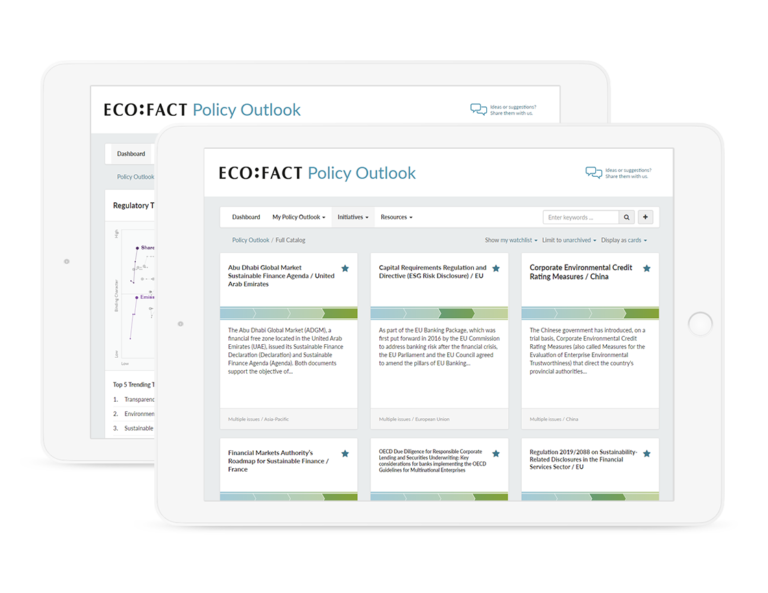ESG Disclosures in EU Regulation: Impact for non-EU market players
Non-EU market players should carefully assess the potential impact of the Sustainable Finance Disclosures Regulation (SFRD; Regulation 2019/2088) and the Sustainability Taxonomy Regulation (STR; Regulation 2020/852) on their business activities—they impose a great deal of disclosure obligations concerning environmental, social, and governance (ESG) issues. Amongst the regulations’ goals is the aim to safeguard the European market of financial products and advice against greenwashing. To this end, the regulators have set a comprehensive geographical scope, including applicability to market players located outside the EU.
Who is included?
Of course, market players in EU member states will be required to adhere to the SFRD and STR’s requirements. Market players in Iceland, Liechtenstein, and Norway are also included because these regulations have relevance for the European Economic Area. All other non-EU market players should consider the following criteria when determining if the disclosure obligations apply to their entities and products:
- The location of their business units offering/marketing the financial product/advice (place of registration of parent, subsidiaries, or branch offices);
- The location of the client purchasing the financial product/advice (place of residence of individual or place of registration of legal entity); and
- The location of the financial product/advice (place of registration and of offering/marketing).
In principle, if one or more of the above is within the EU, the SFDR and STR will apply. Consequently, market players in Switzerland, the United States, Brazil, China, Japan, or elsewhere, would be subject to the enhanced disclosure obligations.
What should be done?
In practice, market players offering financial products or financial advice must quickly adjust their pre-contractual documents, websites, and periodic reports. This implies the adjustment of internal procedures, IT systems, and functional delegations. The timeline is tight, as some of the disclosure obligations are due in March 2021.
The disclosure obligations extend to entity-level and product-level transparency on ESG factors. The draft Regulatory Technical Standards (“RTS”) published by the European Supervisory Authorities in April 2020 details how the disclosures should be made. The four Policy Outlook checklists published in May and June 2020 provide an overview of the RTS requirements.
What’s next?
So far, requirements cover financial products and financial advice as defined in SFDR. Generally speaking, financial products include portfolios under discretionary portfolio management, alternative investment funds, insurance‐based investment products, pension products and schemes, as well as undertakings for the collective investment in transferable securities. Advice includes investment and insurance advice.
In early July 2020, the European Banking Authority announced that additional requirements are expected in the context of European prudential regulation. In particular, we may see regulation applicable to other elements of a financial institution’s balance sheet, such as loans and deposits.
If you’d like further information or regulatory implementation support, do not hesitate to reach out to us.
 All posts
All posts Contact
Contact



